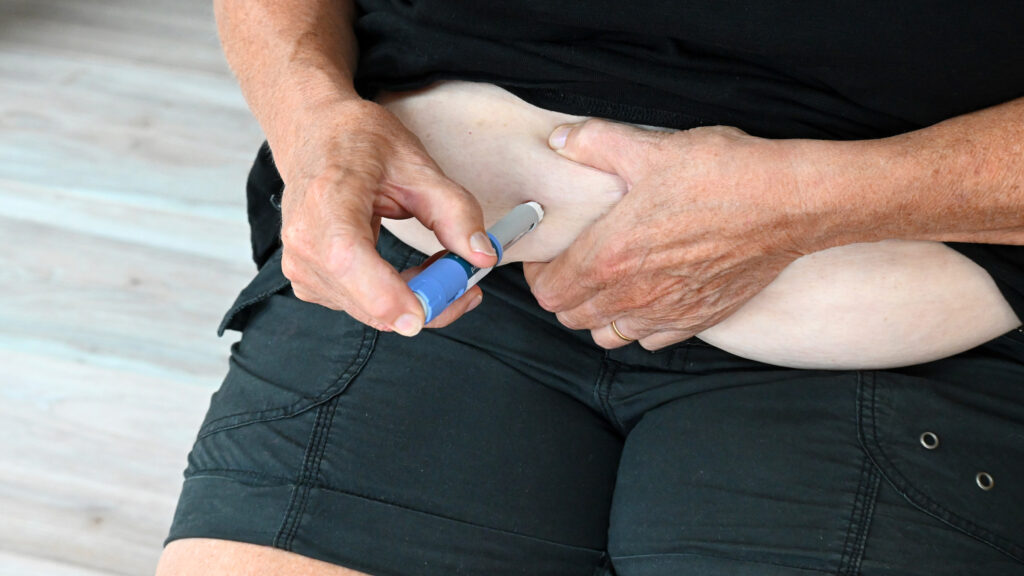Understanding Medicaid Weight Loss Injections
What Are GLP-1 Receptor Agonists?
GLP-1 (glucagon-like peptide-1) receptor agonists are injectable medications originally developed for type 2 diabetes management. These drugs mimic the GLP-1 hormone to regulate blood sugar, suppress appetite, and slow gastric emptying, contributing to significant weight loss. Popular GLP-1 medications include:
- Wegovy (semaglutide)
- Ozempic (semaglutide)
- Mounjaro (tirzepatide)
- Zepbound (tirzepatide)
Why They Matter
These medications can lead to 10–15% or more reduction in body weight, often outperforming traditional diet and exercise interventions alone.
Does Medicaid Cover Weight Loss Injections?
State-Specific Coverage
Medicaid is jointly funded by federal and state governments, which means coverage varies widely. As of mid-2025:
- Over a dozen states have started covering GLP-1 medications for weight loss.
- Some states offer coverage only if the individual has comorbidities like type 2 diabetes or high blood pressure.
Check your state’s Medicaid formulary to confirm specific coverage.
Eligibility Requirements
To qualify for Medicaid weight loss injections, most states require:
- BMI ≥30, or ≥27 with a comorbid condition
- A documented history of unsuccessful weight loss attempts
- A physician-supervised weight loss program
Benefits of Medicaid Weight Loss Injections
1. Accessible Care for Low-Income Individuals
GLP-1 medications can cost over $1,000 per month without insurance. Medicaid coverage makes these treatments accessible to those who might otherwise go without.
2. Improved Health Outcomes
Weight loss of 5–10% significantly improves markers such as:
- Blood pressure
- Insulin sensitivity
- Cholesterol levels
- Liver function
This can reduce the risk of chronic conditions like heart disease, stroke, and certain cancers.
3. Enhanced Quality of Life
Patients often report improved mobility, energy levels, mental health, and self-esteem following treatment.
Challenges and Limitations
Coverage Gaps
Many states still do not cover GLP-1 drugs for weight loss unless used for diabetes management. This can leave those with obesity but no diabetes without access.
Prior Authorization
Even in states with coverage, patients often face strict prior authorization processes requiring:
- Clinical documentation
- Laboratory results
- Physician recommendations
Side Effects
Common side effects include:
- Nausea
- Vomiting
- Diarrhea
- Constipation
These are usually temporary but should be monitored closely by healthcare providers.
How to Access Medicaid Weight Loss Injections
Step 1: Verify Coverage
Consult your state’s Medicaid formulary or speak with a Medicaid representative.
Step 2: Consult Your Physician
A primary care provider or endocrinologist can evaluate your eligibility and assist in documentation.
Step 3: Begin Prior Authorization
If required, your provider will initiate the authorization request, including medical history and justification.
Step 4: Start Treatment and Monitor Progress
Regular check-ins ensure the medication is effective and side effects are managed.
Real-World Example: North Carolina Medicaid Expansion
North Carolina expanded its Medicaid program to cover Wegovy and Zepbound for patients with a BMI of 30+ or 27+ with comorbidities. Since implementation, physicians report significant improvements in patient outcomes and reductions in obesity-related hospitalizations.
Alternative Options if Medicaid Denies Coverage
- Patient Assistance Programs: Drug manufacturers like Novo Nordisk and Eli Lilly offer discounts or free medication programs for eligible patients.
- Clinical Trials: Participation in obesity treatment studies may provide free access to medications.
- State Advocacy: Advocate for policy change by contacting state health departments or joining public health campaigns.
Frequently Asked Questions (FAQs)
Are weight loss injections safe?
Yes, when prescribed and monitored by a healthcare provider. They have been rigorously tested in clinical trials.
Will Medicaid cover Ozempic for weight loss?
Typically, Ozempic is covered for diabetes but may not be approved solely for weight loss unless your state allows off-label use.
How long do I need to take GLP-1 injections?
These medications are most effective when used long-term, alongside lifestyle changes. Discontinuation can lead to weight regain.
Conclusion
Medicaid weight loss injections offer a promising solution to America’s obesity epidemic. As more states recognize the health and economic benefits of covering GLP-1 therapies, access continues to expand. If you qualify, talk to your doctor about starting treatment and advocate for coverage where it’s needed.

